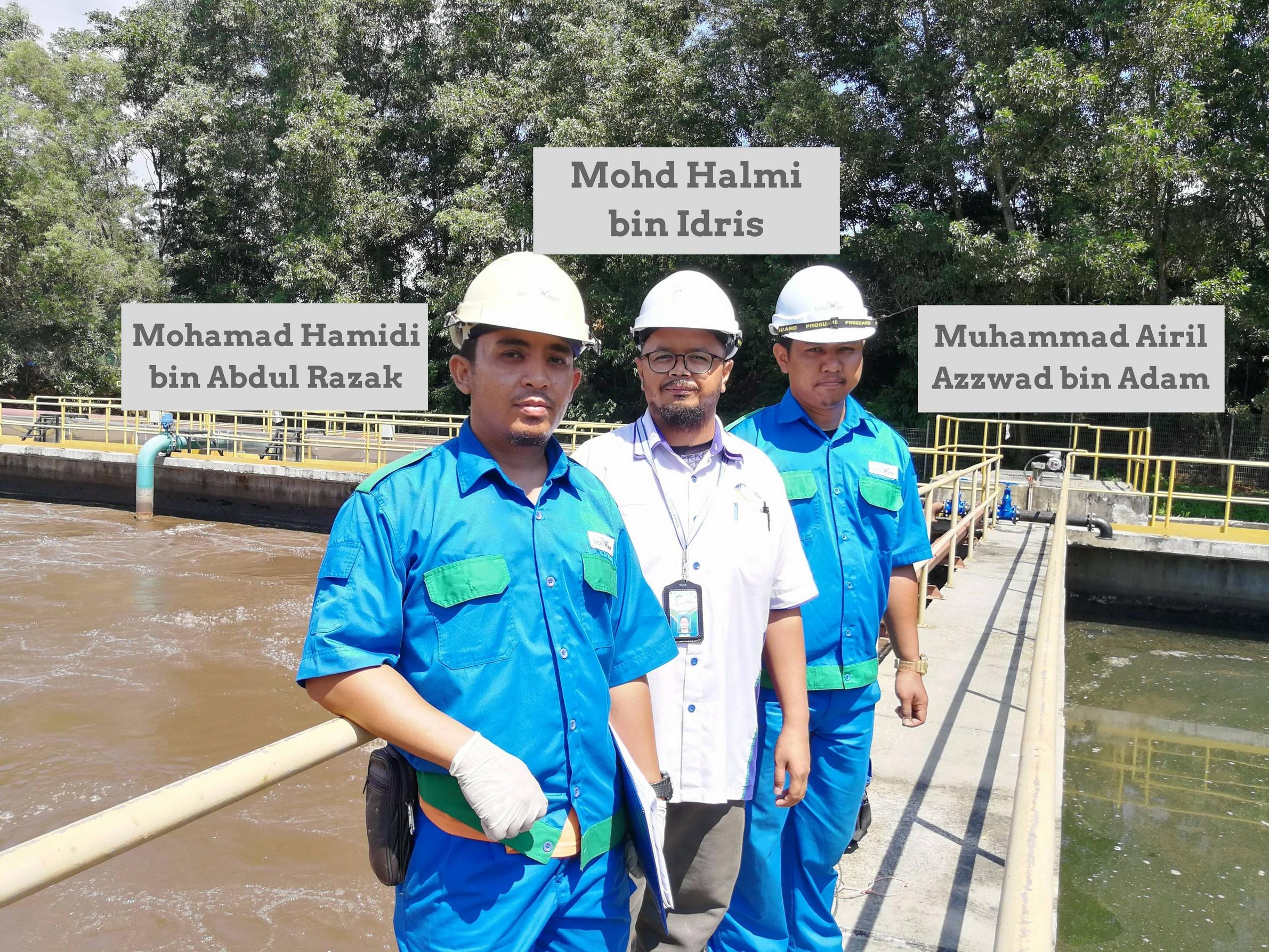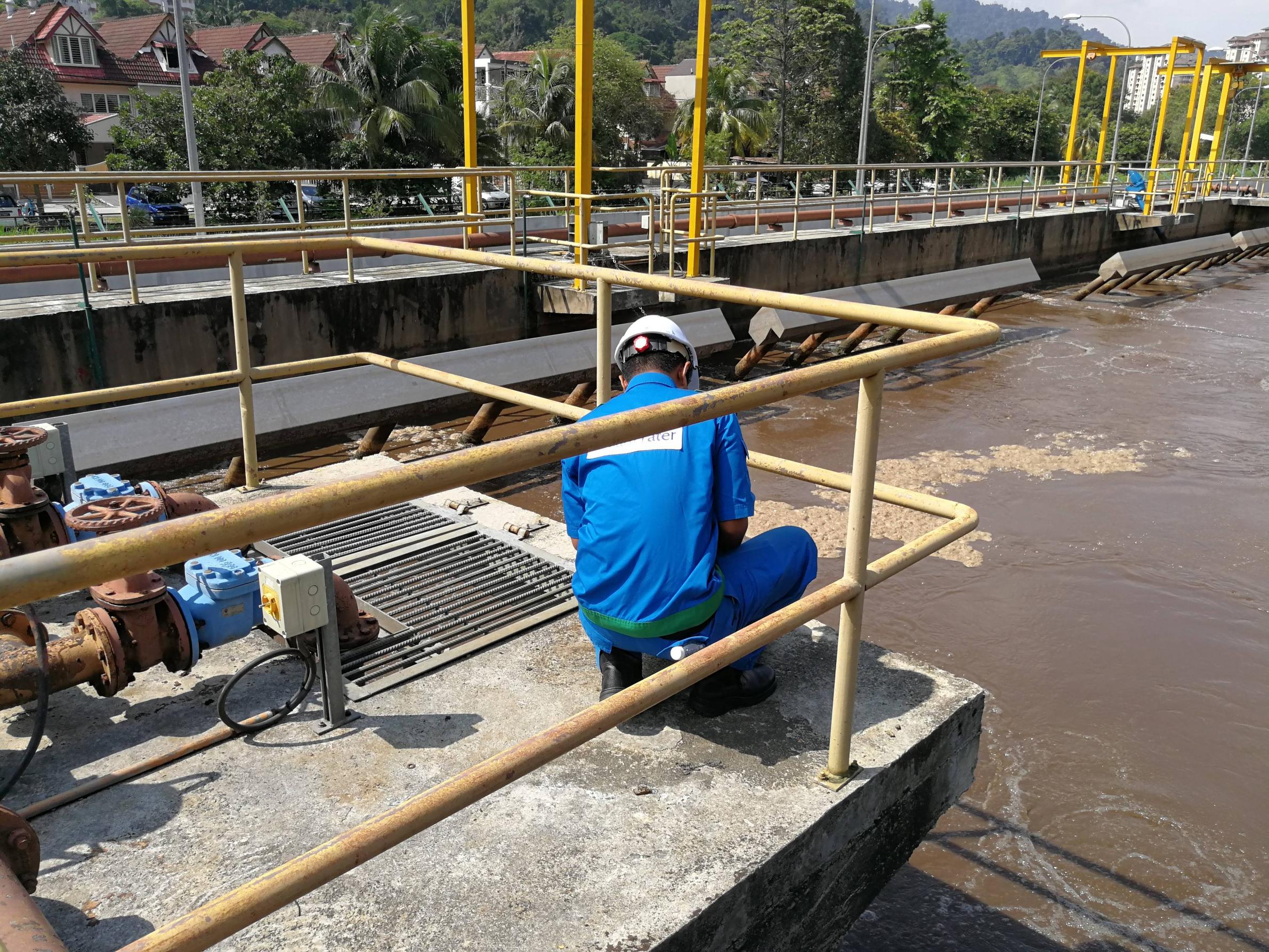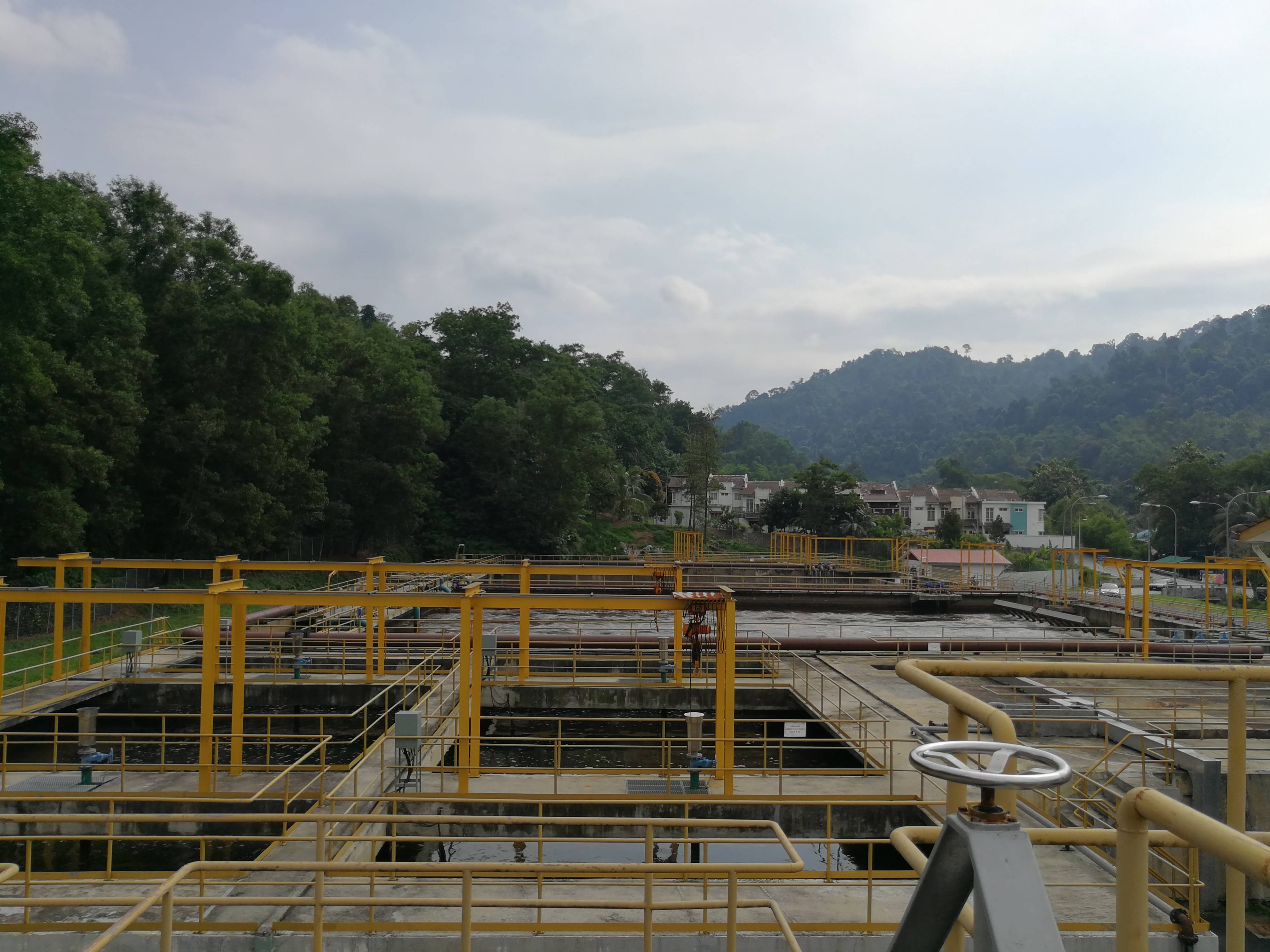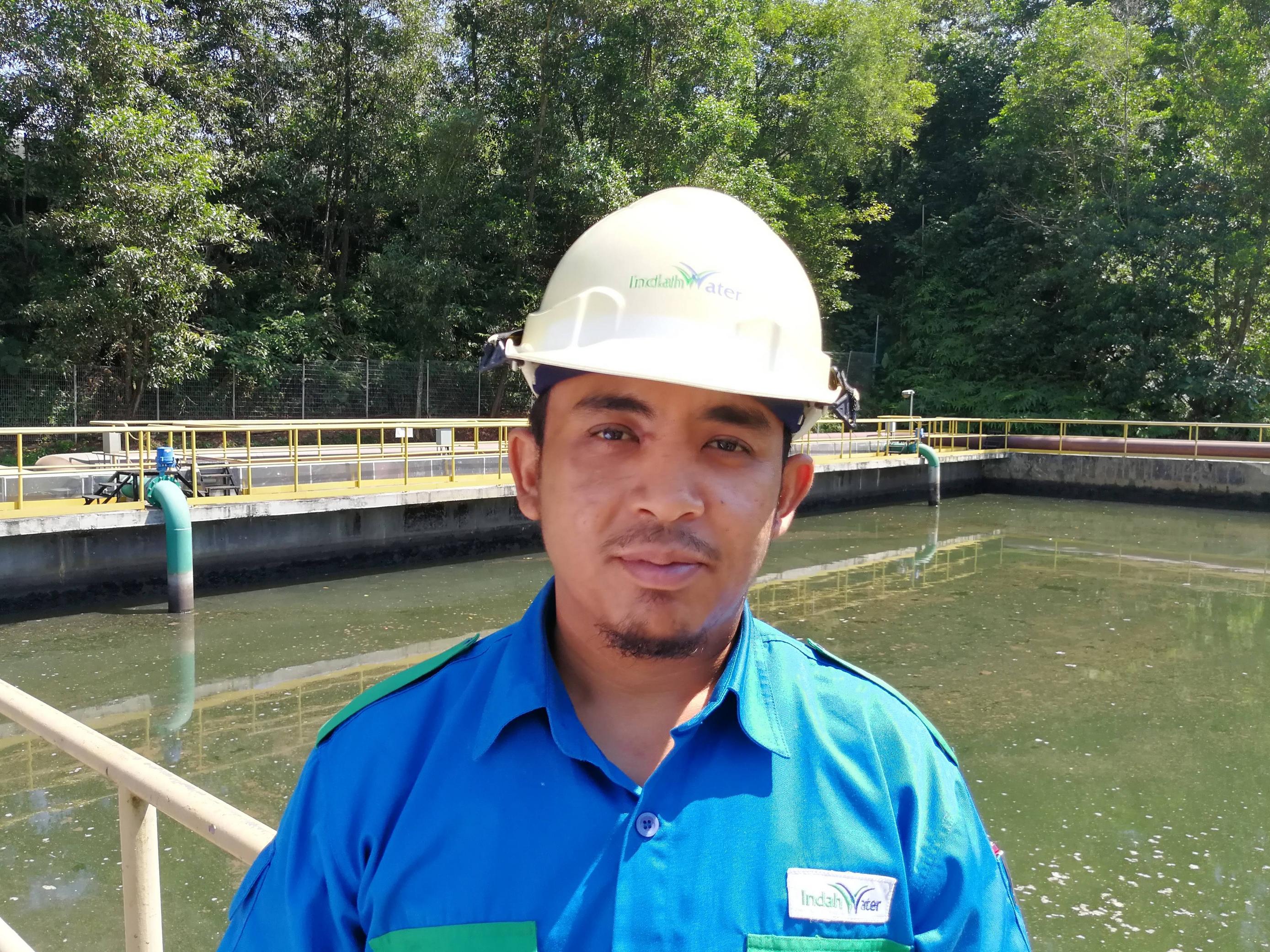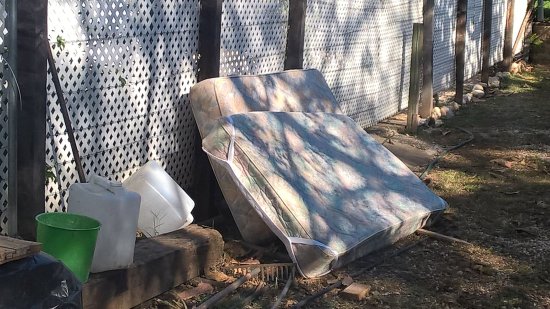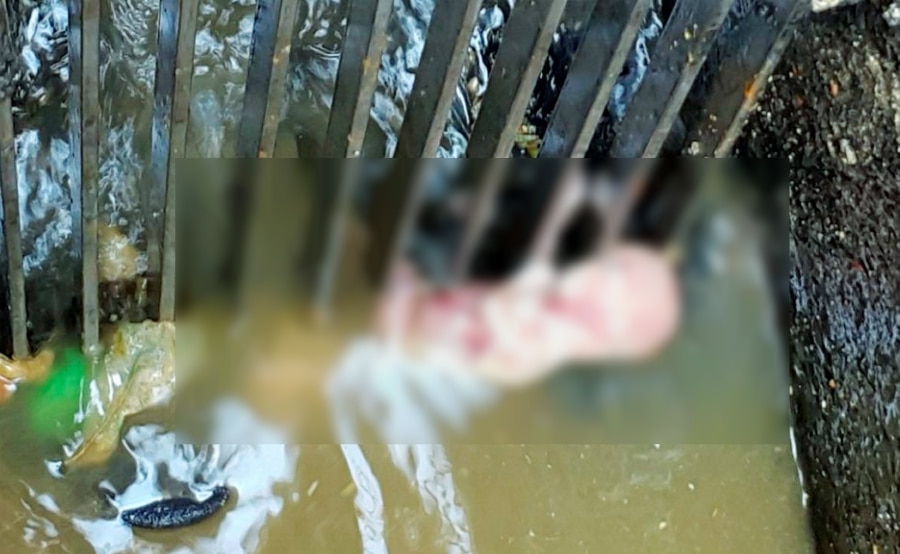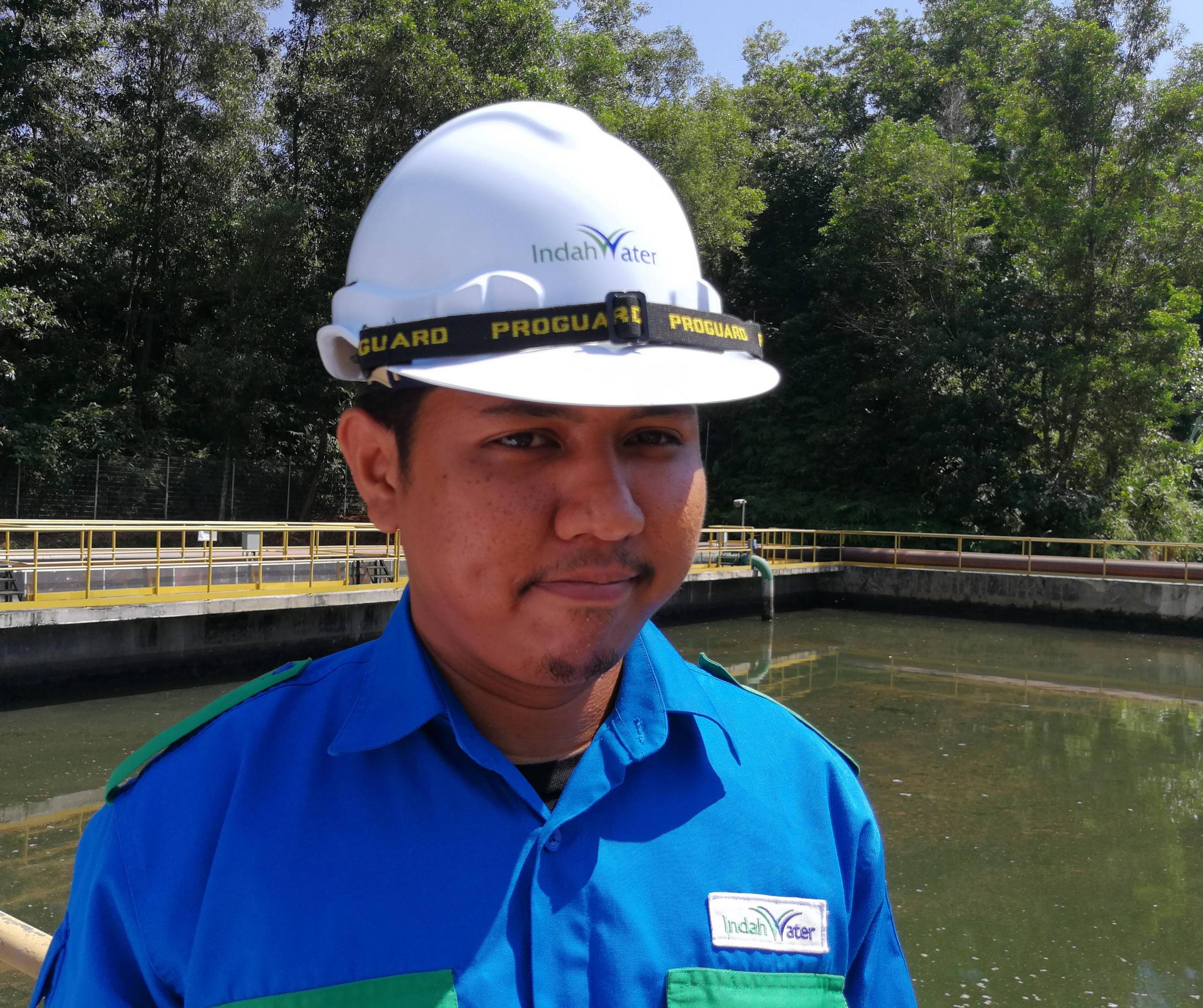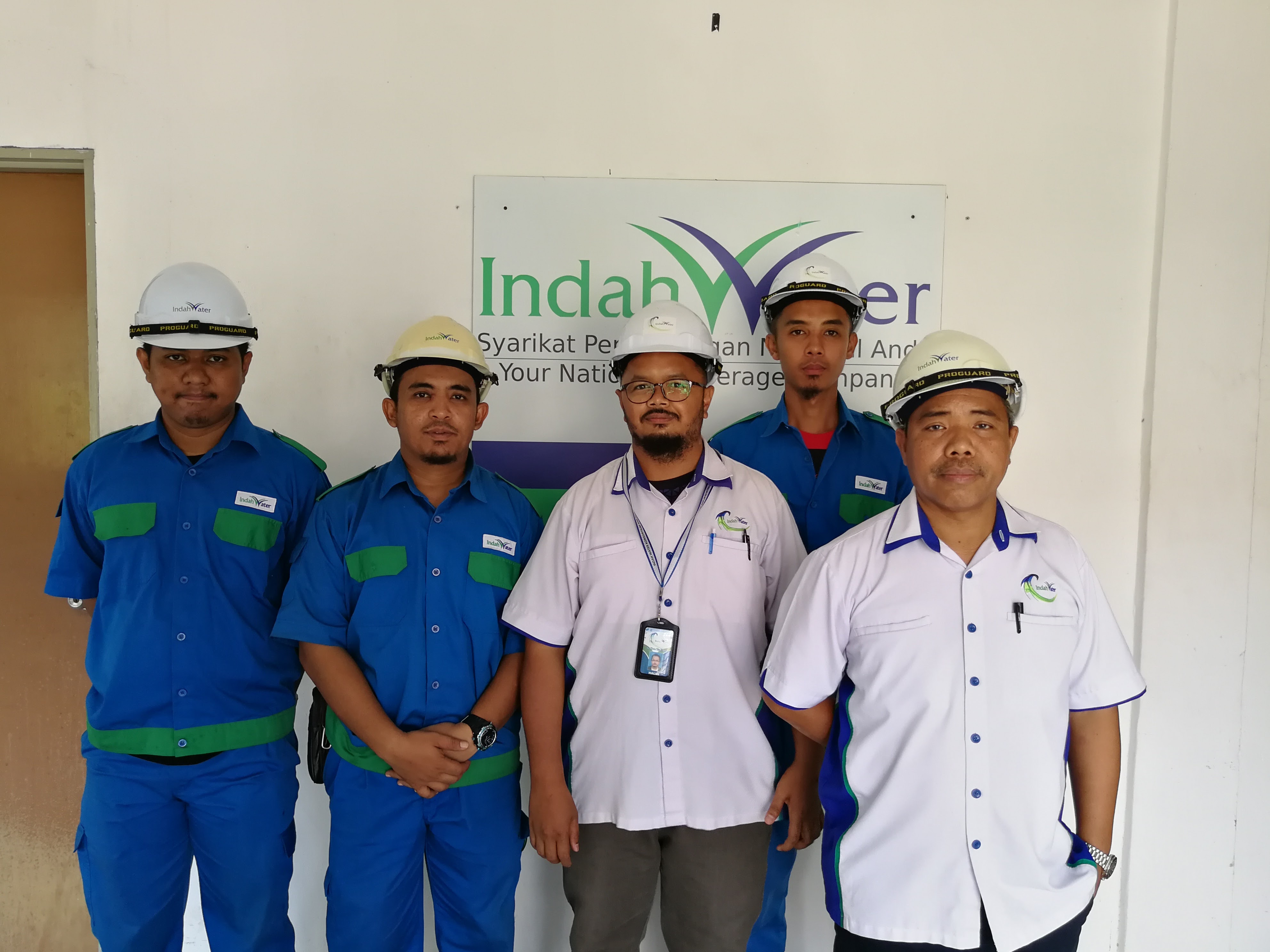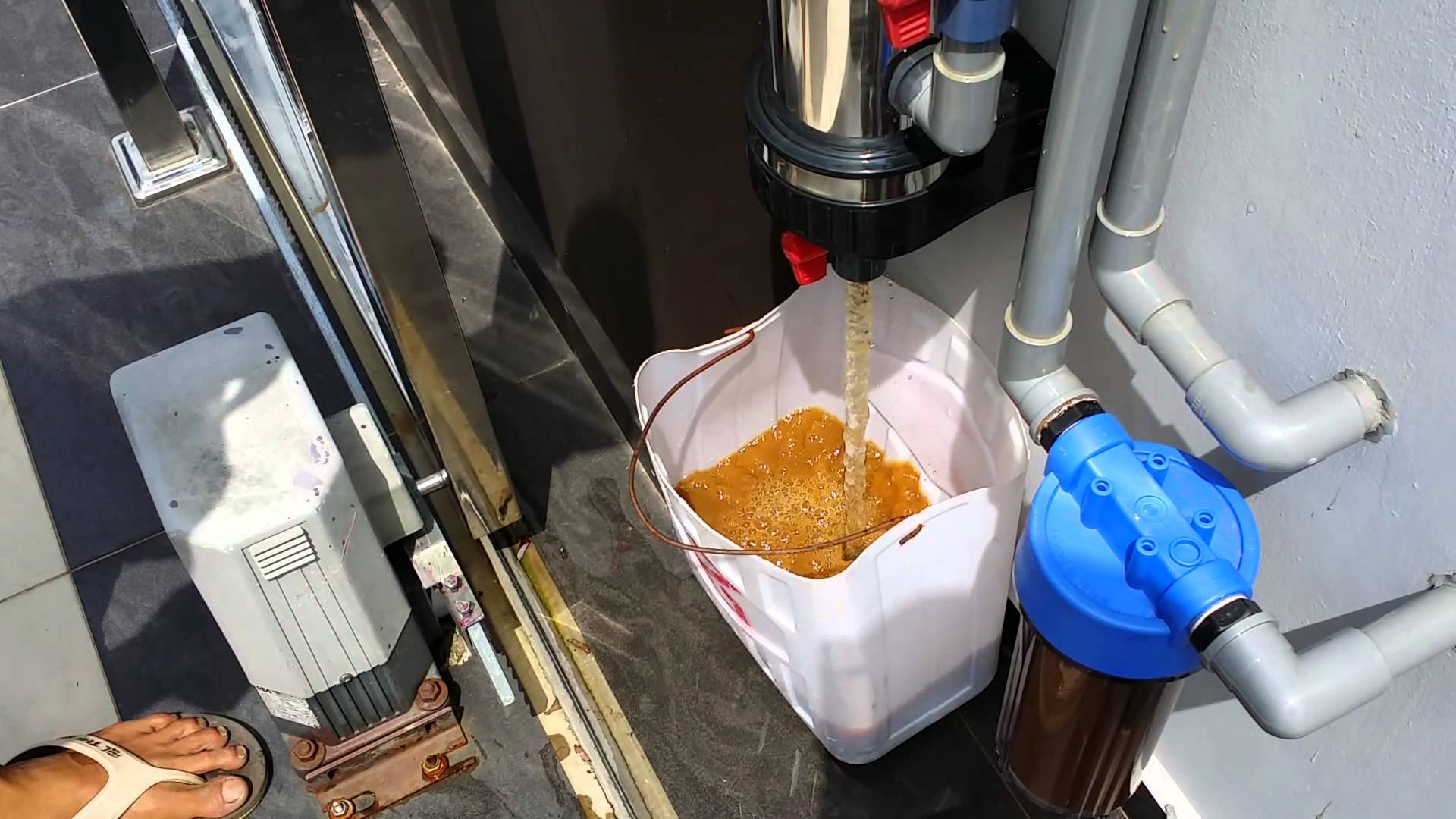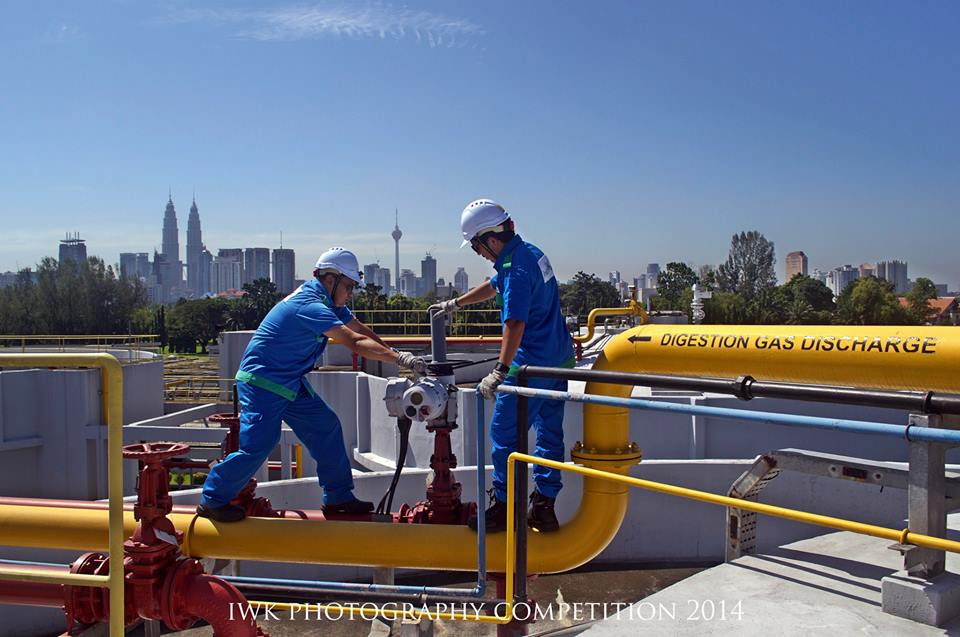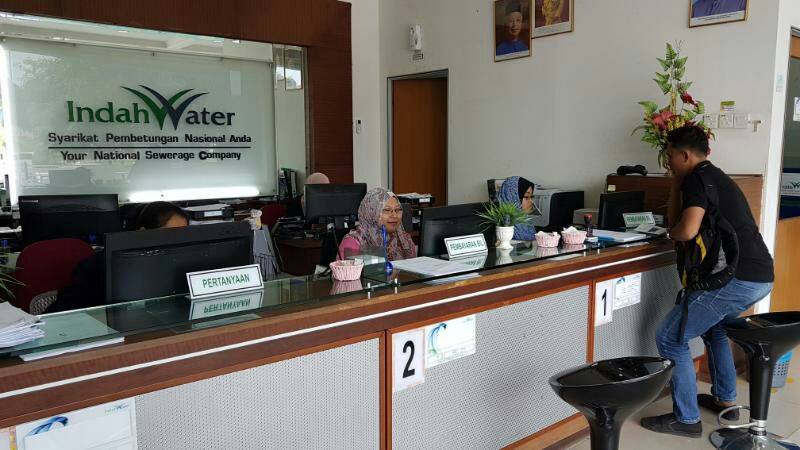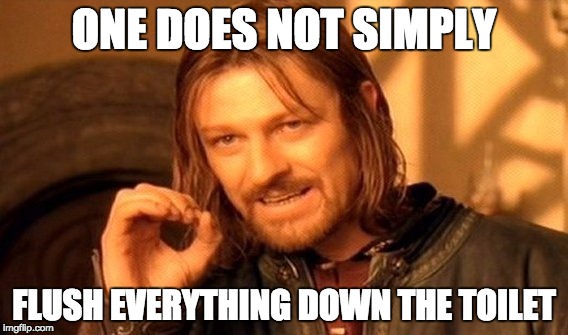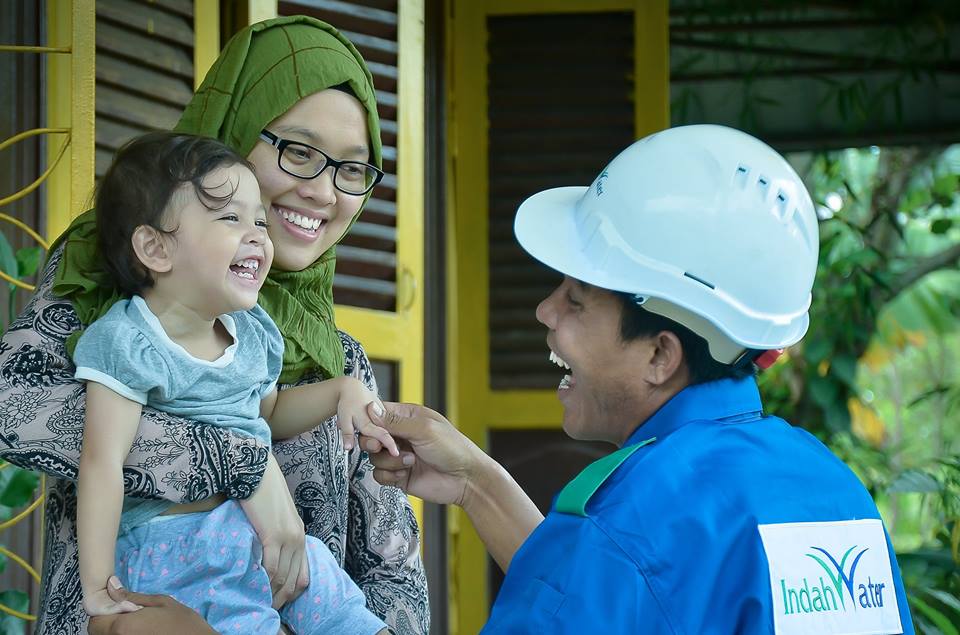What’s The Hardest Thing About Treating Our Sewers? We Spoke To 3 Guys Who Do It Everyday
It's definitely not an easy job, that we can tell you.
We recently had the chance to speak to three guys who work in a sewage treatment plant in KL
You could say that Mohamad Hamidi, Mohd Halmi, and Muhammad Airil Azzwad have one of the most unpleasant jobs in the world - treating sewage.
That means they deal with whatever you flush down the toilet, the oil and sauces that you pour down the sink, and everything that people dump into the sewer. And they have to see (and sometimes even touch) these everyday.
A normal day starts at 8am for Halmi and his team of technicians, where they need to gather wastewater samples for testing
Their day at work usually starts with making rounds at the Indah Water sewage treatment plant where they're posted. All the equipment are checked to ensure that they are operating properly.
After that, Airil will head to the Intermittent Aeration Tank to check the oxygen level in the wastewater. If the oxygen level is found to be too high, the team will have to reduce it to remain energy efficient. This is done twice a day: once in the morning, and once in the evening.
His fellow technician, Hamidi, will then proceed to check the sedimentation rate of the tank. This is the last step of sewage treatment, where they use gravity to remove impurities from the water. It should not take more than 30 minutes for the remaining dirt to be removed from the water. He has to check this at all four areas of the tank to ensure that it's uniform.
The team will then have to calculate the raw data and key them into the system for monitoring. They also constantly check on the machines in the pump station, and may sometimes need to manually clean the tanks.
But when one of the equipment is faulty, the rest of the day can be really difficult
The most frustrating thing about the job is not the smell or the long hours under the sun - it's when one of the equipment break down. "Troubleshooting is one of the most annoying things," said Hamidi, a Technician who has been working at the sewage treatment plant for seven years.
The team will have to figure out the root cause as fast as they can. A minute too long can mean energy inefficiency or worse - a drop in the quality of water treated. Most of the time it's due to the equipment being overused, some of which can be easily fixed by the team themselves. If it's too serious, the team will have to call the managers to help figure out.
"Usually we see a lot of sanitary pads and clothes getting stuck on the screen... there were also babies in the sewage..."
As a Treatment Executive, Halmi is in charge of supervising several treatment plants in the area. He is usually also the first person the technicians call when they notice unusual objects at the primary mechanical screen, where they filter raw sewage that comes directly from the pipes and drains.
"Usually we see a lot of sanitary pads and clothes getting stuck on the screen, which we have to manually remove. The weirdest things I've seen is a whole mattress in the sewage. I have no idea how the managed to fit it in the sewer," Halmi commented.
He sighed as he shared about the worst thing he's seen on the job, "There were also babies in the sewage. Mostly foetus." It's not the first time that babies' bodies were found in the sewage.
While most young Malaysians wouldn’t see this line of work as particularly appealing, 28-year-old Airil is determined to learn more about water treatment and important processes many don’t know about
This is Airil's third month working at Indah Water, training to be a Technician. When asked why did he choose this line of work, he said, "I wanted to learn more about the process of how the water we 'throw away' is being treated. It's really interesting, when you actually find out how it works."
He and his team want Malaysians to know that ‘sewage’ doesn’t just refer to things you flush down the toilet. "It also includes the water from your shower, the oil and leftover pieces of food you wash down the sink, and the rubbish that irresponsible people throw into the drains.
"Sometimes an unlucky biawak can fall into a sewer and it will end up here with us," his boss laughed as he told us.
Luckily there wasn't any there when we visited. *gulp*
By the way, Malaysians produce enough wastewater to fill 2,000 Olympic-sized swimming pools everyday
That's 5.1 million cubic metres of toilet, sink, and waste water per day, guys.
It's estimated that a single Malaysian produces up to 225 litres of wastewater everyday. According to iMoney, that amount of wastewater will cost Indah Water at least RM35.94 to treat.
People who pour cooking oil into the sink also cause terrible problems at work for Halmi and his team as grease could clog up the pipes
One of the worst things the public is guilty of is pouring cooking oil into the basin. "Many people do not know this but you're not supposed to pour oil into the sink. It'll end up here in the sewage and could clog up the pipes," Halmi said. What you should do is to collect the used cooking oil with tissue papers and throw them in your rubbish bin for disposal.
Clogged sewage pipes can cause these waters to flow backwards into the nearby parks, roads, and worse still - back into your house. They are not easy to clean, and can take up a lot of time and money to do so - about RM1,400 per pipe. In 2015, Indah Water spent RM26 million just to unclog pipes all over Malaysia.
It also doesn't help that at least 13% of Malaysians do not pay their sewerage bills
And it's not even expensive! For all the work they're doing to provide us with clean water, we only need to pay between RM2-8 every month, depending on the type of building we're living in.
Without the necessary funds, people like Halmi and his team will have to shoulder the extra burden
Indah Water depends heavily on the government for funds to cover their cost of operations, which includes the maintenance of equipment and staff welfare.
With so many Malaysians not paying their sewerage bills, it may take some time before certain worn equipment can be replaced. In the mean time, the Technicians will have to do some of the work manually while they wait for new equipment to be ordered.
While they don't mind the longer hours they might have to spend at work, it's the quality of water treated that they worry about. After all, you can't really compare the results produced by machines to those done by humans.
Indah Water may also face problems in treating water due to shortage of funds
Inadequate treatment of sewage water goes beyond the presence of unpleasant smells in your housing or office areas. It also means that we'll be surrounded with dirty water - not just in the septic tanks, but also from the taps we have at home.
Dirty water and poor sanitation are the cause of many diseases. More than three million people die from diseases that are caused by unclean water and inadequate sanitation.
We are lucky to have the proper technology, equipment, and dedicated people who treat our sewage
Compared to many countries, we are well equipped with a sewage treatment system that is efficient and effective in Malaysia. As citizens and homeowners, the least we could do is to pay our bills on time so Mohd Halmi and his team at Indah Water can carry out their jobs more effectively to ensure we get clean water and homes.
You can pay your Indah Water bills easily through online banking or at the post office
You can pay your bills via the JomPay feature in your online bank accounts. If you prefer to pay it in person over the counter, you can do so at any post office or Bank Simpanan Nasional branches.
Oh, and last but not least, please don't throw everything into the toilet and sinks!
"Please don't throw everything into your toilet bowl, sink, or drain. Sometimes these things get stuck in our screens and can damage the equipment," Halmi said.
And don't forget to pay your Indah Water bills this month, ok?
You can find out more about the payment methods here.
